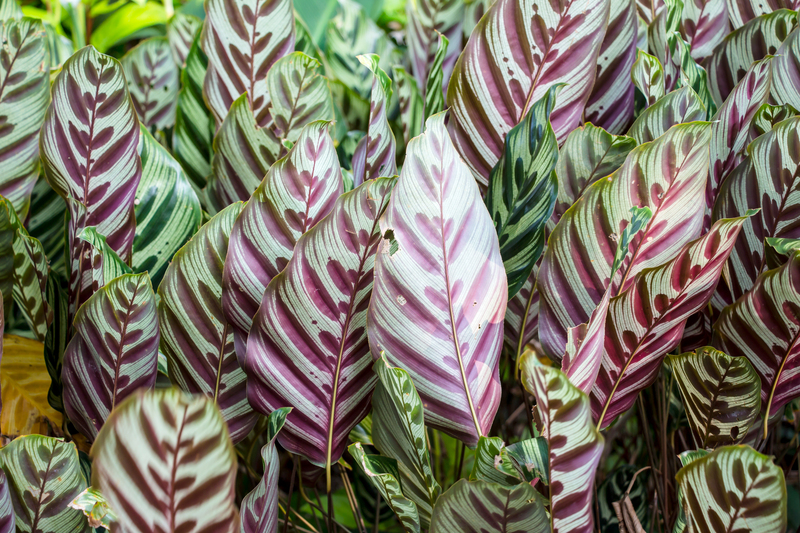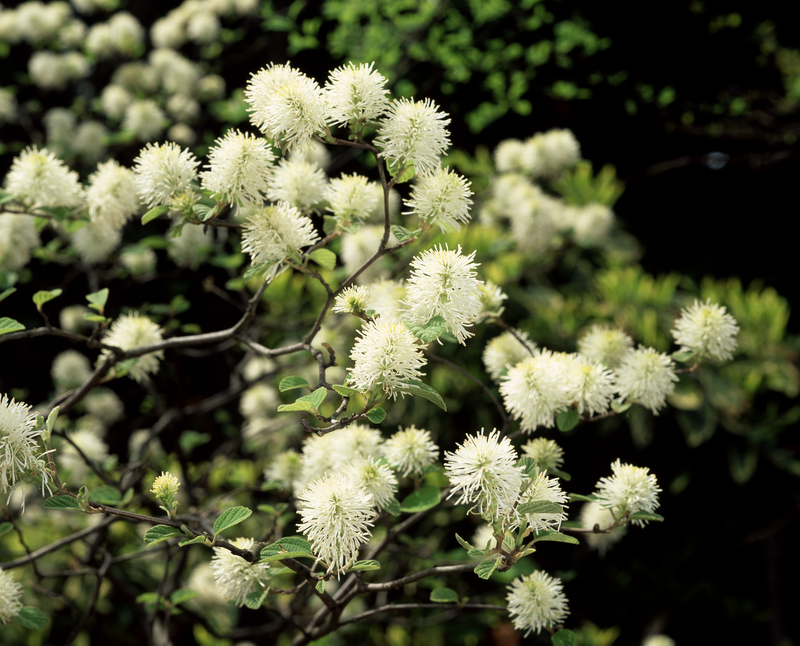The Zen of Cultivating a Tranquil Herb Garden
Posted on 01/07/2025
The Zen of Cultivating a Tranquil Herb Garden
Discover peace, harmony, and natural beauty by creating your own tranquil herb garden. This comprehensive guide will walk you through the mindful art of cultivating a zen-inspired herb garden that nourishes both body and soul.

Why Create a Tranquil Herb Garden?
In our fast-paced world, finding pockets of tranquillity is essential for well-being. A tranquil herb garden offers more than fresh herbs for culinary and medicinal uses; it provides a soothing sanctuary for reflection and mindfulness. Connecting with nature through gardening can reduce stress, encourage creativity, and foster a deep sense of satisfaction. A peaceful herb garden is a holistic retreat and a celebration of the senses--inviting you to touch, smell, and savor the zen-like calm only nature can provide.
Benefits of a Serene Herb Garden
- Stress Relief: Mindful gardening reduces anxiety and calms the nervous system.
- Mindful Practice: Engages you in the present moment, rooted in the cycles of nature.
- Natural Beauty: Offers a visually pleasing and fragrant escape from daily routines.
- Fresh Herbs: Supplies a bounty for use in teas, meals, and wellness remedies.
Principles of Zen in the Herb Garden
Zen gardening principles focus on simplicity, balance, and natural beauty. When designing your zen herb sanctuary, consider these elements:
- Asymmetry: Create interest through imperfect, natural forms and layouts.
- Naturalness (Shizen): Embrace organic growth and let each plant express its unique character.
- Simplicity (Kanso): Limit clutter and non-essential decorations to maintain calm visual appeal.
- Subtlety (Yugen): Incorporate subtle hues and fragrances to enhance the peaceful atmosphere.
Harmony in Plant Selection
Choose herbs that thrive together, ensuring compatibility and balance in your tranquil garden. The right selection adds visual interest and encourages effortless growth. Incorporate different textures--from velvety sage to delicate cilantro--for tactile variety and sensory stimulation.
Planning Your Zen-Inspired Herb Garden
Selecting the Perfect Location
The ideal spot for your peaceful herb garden is one that receives ample sunlight (at least 4-6 hours daily) while allowing moments of dappled shade. Proximity to your kitchen is a bonus for convenient harvesting. If space is limited, don't hesitate to use containers or vertical gardening techniques to create your serene herb oasis on a balcony or windowsill.
Design Elements for Tranquillity
- Curved Paths: Gently winding walkways slow your pace and encourage mindful exploration.
- Natural Rocks and Mulches: Add structure and organic texture, grounding the space in natural elements.
- Water Features: The gentle sound of trickling water soothes the senses and enhances the zen ambiance.
- Resting Spots: Include a bench or a smooth stone for seated meditation and contemplation amidst your herbs.
Choosing Herbs for a Peaceful Garden
Classic Herbs for Tranquillity
The key to a restful herb garden is growing plants known for their gentle aromas, calming effects, and easy maintenance. Some of the best herbs for cultivating a zen-like atmosphere include:
- Lavender: Famous for its calming scent and soothing purple blooms, lavender is a cornerstone of any peaceful garden.
- Chamomile: Delicate daisy-like flowers create a dreamy aesthetic and can be harvested for relaxing teas.
- Lemon Balm: Its citrusy aroma naturally lifts the mood and reduces anxiety.
- Sage: A symbol of wisdom, sage provides silvery-green leaves with a warming scent and flavor.
- Mint: Refreshing and vigorous, mint's crisp fragrance invigorates mind and body.
- Basil: Sweet basil varieties inspire clarity and peacefulness in both cooking and meditation.
- Rosemary: Traditionally used for remembrance, rosemary's piney aroma promotes mental clarity.
Additional Herbs for Zen Gardens
- Thyme--for subtle groundcover and uplifting fragrance.
- Oregano--for culinary uses and soft, mounding growth.
- Catnip--draws local pollinators and has relaxing properties for humans and pets alike.
- Holy Basil (Tulsi)--a sacred herb in Ayurveda, treasured for its spiritual and calming energy.
- French Tarragon--adds spicy fragrances and feathery foliage.
Planting and Arranging Your Herb Haven
Preparing the Soil
- Loamy, Well-Drained Soil: Herbs thrive in loose, rich soil that prevents waterlogging.
- Compost and Organic Matter: Mix in plenty of nutrients to encourage healthy growth and vibrant aromas.
- Mulching: Organic mulches like bark or shredded leaves stabilize moisture and suppress weeds naturally.
Mindful Layout
Group herbs with similar sunlight and water needs together. Taller plants like rosemary and lavender can be placed at the back or center, while smaller, trailing herbs such as thyme and mint form lush groundcovers. Use stones, woodchips, or brick edges to subtly define beds without harsh lines.
Incorporating Decorative Zen Elements
- Bamboo Fencing: Adds a tranquil, natural backdrop to frame your herb patch.
- Smooth Pebbles: Create dry stream beds for subtle movement and texture.
- Small Statues: Buddha or pagoda statues bring spiritual focus and artistic aesthetic.
- Sand or Gravel Patches: For meditative raking and a classic zen garden touch.
Caring for Your Tranquil Herb Garden
Watering and Nurturing
Consistency is key for zen and for herbs. Water early in the morning to reduce evaporation and fungal issues. Allow soil to dry slightly between waterings, as most herbs dislike soggy conditions. Use a drip irrigation or soaker hose for gentle, efficient watering.
Pruning and Harvesting: Rituals of Mindfulness
- Prune Regularly: Light trimming encourages bushy, healthy plants and revitalizes growth.
- Harvest Mindfully: Pick leaves with gratitude, savoring their scent and appearance before use.
- Pinch Blossoms Sparingly: Let some herbs flower to attract pollinators and add beauty.
Pest Control the Natural Way
- Companion Planting: Plant basil with tomatoes and chives near roses to deter pests naturally.
- Beneficial Insects: Encourage ladybugs, bees, and butterflies to balance your mini-ecosystem.
- Homemade Sprays: Use diluted soap or neem oil for gentle, non-toxic pest control.
The Art of Mindful Gardening
Making Gardening a Meditative Practice
Zen gardening goes beyond the physical act of growing plants--it's about engaging the senses and living in the moment. Practice deep breathing as you work with the soil. Use mindful observation, noticing the sun's movement, the sound of birdsong, and the gentle rustle of leaves. Each action, from weeding to harvesting, becomes a form of active meditation. Over time, the act of tending your zen-like herb garden becomes both a ritual and a refuge.
Seasonal Rituals for Deeper Connection
- Spring: Celebrate renewal by planting new herbs and refreshing compost.
- Summer: Set aside quiet evenings for hand-watering and gathering fragrant bouquets.
- Autumn: Harvest and dry herbs for winter use, reflecting on abundance and gratitude.
- Winter: Plan next year's garden and enjoy herbal teas from your own harvest.
Creative Ways to Enjoy Your Peaceful Herb Garden
Herbal Teas and Wellness Rituals
Transform fresh leaves into calming teas and infusions. Lavender, chamomile, and lemon balm are perfect for soothing blends that invite relaxation. Use sprigs of rosemary or mint in your bath or as part of a mindful self-care ritual to deepen the garden's effects.
Culinary Inspiration
- Sprinkle fresh herbs into salads, pastas, and soups for vibrant flavors and aromas.
- Craft compound butters or infused oils with herbs for sensory-rich cooking.
- Use dried mixtures to flavor breads, crackers, or salts--each meal becomes a celebration of your herbal harvest.
Crafting and Gifting from the Garden
- Create herb sachets for stress relief or to freshen drawers naturally.
- Craft herbal wreaths for doors or meditation spaces.
- Gift homegrown herb bundles to friends and family, extending tranquility beyond your own garden.

Tips for Maintaining Tranquillity in Your Herb Retreat
- Minimize Clutter: Keep decorative elements simple and meaningful.
- Regular Maintenance: Weekly weeding, pruning, and sweeping preserves the calming atmosphere.
- Embrace Imperfection: Allow nature's irregularities and surprises to enhance your meditative space.
- Balance Silence and Sound: Choose wind chimes or quiet water features for subtle, soothing background noise.
- Reflect Often: Spend quiet moments observing your tranquil herb garden, noticing change and growth as metaphors for inner peace.
Conclusion: Embrace the Zen of Cultivating a Tranquil Herb Garden
Creating your own zen-inspired herb garden sanctuary is a gift to yourself and the environment. By blending principles of harmony, natural beauty, and mindful care, you nurture a space where serenity, flavor, and fragrance bloom together. Even the humblest window box can become a portal to peace. Embrace the gentle rhythms of gardening, savor every fresh leaf, and find daily stillness in your personal oasis of green.
Whether you're a seasoned gardener or a curious beginner, starting a tranquil herb garden will enrich your life with mindfulness, health, and joy--one leaf at a time.
Latest Posts
Turning Kitchen Scraps into Garden Gold
Embarking on a Garden Makeover: The First Move
Create a Garden Sanctuary for Your Little Ones



